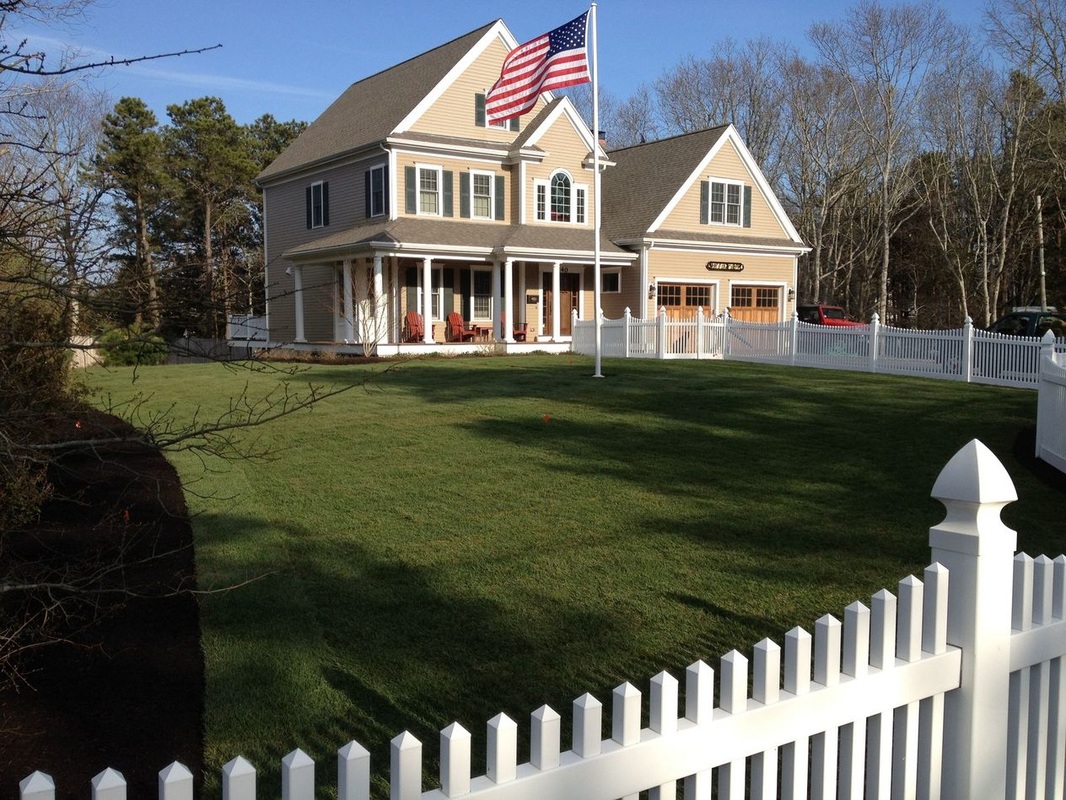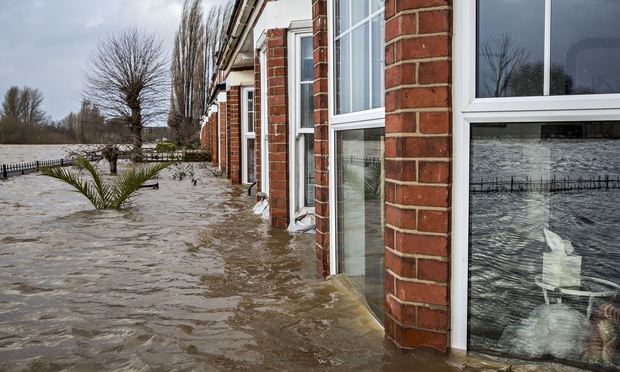 Best Cape Cod Home Insurance - A Few Tips To Save Money Best Cape Cod Home Insurance - A Few Tips To Save Money Call (508)540-2601 for the best alternative to the Massachusetts Property Insurance Underwriting Association, better known as the 'Fair Plan.' The Massachusetts Property Insurance Underwriting Association (MPIUA) is a residual market insurance association in which all companies writing basic property insurance in the Commonwealth are required to participate with losses shared among the member companies on a premium volume basis. Responding to Federal Legislation, the Massachusetts Legislature in 1968 called for an urban area insurance placement facility and thereby gave rise to MPIUA. MPIUA is also known as FAIR Plan (Fair Access to Insurance Requirements). The FAIR Plan operates similar to that of a normal insurance company in that it underwrites and inspects risks, accepts premium, issues policies and adjusts claims. It has a seasoned professional staff, which provides exceptional service to its clientele. FAIR Plans are the outgrowth of the national emergency created by three years of rioting in American cities, beginning with the Watts outbreak in 1965. When the rioting of the 1960s suddenly mushroomed to disastrous proportions, the companies found themselves in the position of having to pay losses in excess of $100 million, on which they had collected no specific premium. Although the companies paid these losses, their capacity was severely taxed and their normal riot reinsurance market had dried up. It became obvious that emergency revisions of underwriting and reinsurance procedures were necessary for the future protection of urban property and urban existence. Is there such a thing as best home insurance? There may be a better question. Is home insurance really that expensive? Homeowner’s insurance may very well be the consumer’s best buy when it comes to insurance. There are multiple benefits and features that make the home policy unique. Most everything that the homeowner owns including the dwelling can be covered in some way by homeowner’s insurance. When you think of the magnitude of the coverage afforded by homeowner’s insurance versus the premium paid then you would have to agree that homeowner’s insurance is a very good buy. The rates on property insurance in general, have increased over the last ten years. Much of that has to with increased catastrophes like the hurricanes in Florida. The toxic mold problem that originated out west has also caused premiums to increase on a national basis. The home insurance buyer really needs to focus on a few areas to get the most for the premium dollars paid. Accurate Dwelling Amount – This is the first most critical decision that you will make. The square footage of your dwelling has to be correct in establishing the replacement value of your home. The market value is of little use to you when you purchase insurance to rebuild the structure. Replacement cost is better for homes that have been built within the last 40 years. Check with your insurance company underwriting guidelines. Replacement Cost or Actual Cash Value – This facet of your home insurance policy should be clearly understood. Replacement cost insurance on both your dwelling and its contents means that the insurance company will rebuild or replace your loss with like kind and quality. Actual Cash Value will calculate the replacement cost and then subtract for depreciation. The actual cash value policy is cheaper but you will have to come up with the depreciate amount out of your own pocket. Deductible – Higher deductibles bring your premium down substantially. $500 to $1000 deductibles are common. This is a huge savings to you over the years and is your most valuable tool in lowering the cost.
0 Comments
With all the rising costs in the world consumers are looking for ways to cut costs and save money. Americans spend billions of dollars every year on their home insurance policies. It does not take a genius to figure out that every homeowner needs insurance, most people consider their home to be their greatest asset.
Thousands of homeowners are reaping the rewards that comes from filling out a FREE home insurance quote. Many are receiving 25-30% discounts on their policies while becoming more educated about the home insurance that is right for them. Here are a few tips that might help you when you are shopping for that "Perfect" insurance policy. Increase Your Deductible Just like auto insurance, policies have deductibles, and the same rule of thumb applies--carry the highest deductible you can afford. The higher your deductible, the more premium credit you can expect to receive from your insurance company. Your savings could reach 25% by increasing the deductible from $100 to $1000. Improve Your Home Security Most insurance companies offer discounts for smoke detectors, burglar alarms, dead bolts, fire extinguishers, and Neighborhood Watch Areas. Homes with a fire and burglar alarm system hooked up to a third-party monitoring company receive higher discounts than homes with local bell alarms. Consolidate Policies Insuring two or more vehicles with the same insurance company can save you 10 - 15% on your premiums. If you cover your homeowners insurance and auto insurance together, you can reduce your premiums by another 10 - 15%. Construction Type Before buying a home, consider its construction type, such as frame or concrete block and steel (CBS). A wood frame house typically costs more to insure than one built mostly of concrete. Verify Distance To Fire Stations And Windstorm Areas If you live in the country, you'll probably pay higher rates for your insurance than if you lived in town. Why? It’s because of the longer distance to your local fire station. If you live more than 5 miles from the nearest fire station, and more than 1,000 feet from a fire hydrant, you will most likely pay a higher premium. Before purchasing your home, you may want to get a quote for both and flood insurance. Insurance companies may not offer you windstorm or flood coverage, depending upon the area in which you live. If your home is in a hurricane prone area and your insurance company offers windstorm coverage, then installing approved hurricane shutters should result in a premium discount. Claims Free Record And Renewal Discounts If you have not had a claim under your policy during the past 3 - 5 consecutive years, you could receive up to a 15% discount, depending on the insurance company. Plus, most companies will discount your premium if your policy has been in force for 3 straight years. Mortgage Free Discounts Some insurance companies target who have paid off their mortgage and offer them premium discounts of up to 5%. New And Renovated Home Discounts A majority of insurance companies offer a discount for new homes, and you may qualify if your home was built in the last 10 - 15 years. Also, a recently renovated home costs less to insure, so find out when the last major electrical, heating and plumbing update was completed on the home. Live-In House Keeper Some insurers offer up to a 2% premium credit if you have a live-in employee as they feel it could reduce the likelihood of burglary. Conclusion After reviewing the foregoing savings tips, you may think that if you added up all your credits you could receive a 70 – 90% reduction in your premiums. Unfortunately, it doesn’t work that way. Certain safety or other measures you take may qualify you for being placed with the "preferred" company of a particular insurance group. This "preferred" company will be able to give you more premium credits than a standard company is able to. Going without homeowners insurance is not a smart move if you own a home, but you also have to make sure that there are no holes in your homeowners insurance plan.
Be informed. Stay informed about the risk of flooding. Check with your local Red Cross, planning department, zoning department or emergency management office to find out the risk of flooding in your area. The higher the risk, the more important it is to be prepared to take action. An over-supply of lender-owned homes in the neighborhood may be the one factor that is depressing prices only for the short-term. Their presence will devalue a home, but only until they're sold. So buyers who are in it for the long haul might do well to consider buying in a location such as that - provided that other factors make the home a good choice. People who buy homes in areas that have full-time fire service attract cheaper premium than folks who stay in places with only a volunteer fire service. Be informed that your premiums will be further influenced by your home's distance from a fire station, firefighting equipment or hydrant. People who reside nearest to firefighters or fire fighting facilities pay more affordable rates everything else being equal. On a more personal level, buyers need to think about location in terms of their own lives. Saving several thousand dollars on the purchase price of a home is small comfort if they have to drive an additional 60 minutes to work each day. About two months after purchasing a house and fixing it up, (it was still on the market) the State decided to put my house in a flood zone! The only body of water was a little creek that ran through a golf course half a mile away! What can you do! The Flood Insurance costs $800 a year! Try selling that to a prospective buyer. The first thing you should do is to check with your state agency. There are some states that have requirements when it comes to buying one. They can offer you cheaper policies if you live in an area that has a bigger chance of flooding. Many private insurance companies offer flood policies written through the NFIP. I suggest dealing with an agent that is experienced with the program. This type of policy can be purchased on the phone in a few minutes. Ask your agent about any questions you may have about the program. You can get more information at my Texas flood insurance site or you can call my Houston office at 281-537-2700. |
better Insurance
|
-
HOME
- Send me a Home Insurance Quote >
- FLOOD Insurance, Massachusetts >
- Cape Cod Home Insurance
- Pay Your Home Insurance Bill Online
- Ordinance or Law Coverage
- How to Prevent a Claim on your Home Insurance Policy
- Videos - Cape Cod Real Estate Tips >
- Cape Cod Massachusetts Arbella Insurance Discounts
- Cape Cod Massachusetts Lloyds of London Home Insurance
- Safety Insurance Discounts for Cape Cod, Massachusetts
- MPIUA - MA Property Insurance Underwriting Association "Fair Plan"
- Cape Cod Massachusetts Home Protection Insurance
- Hurricane Preparedness >
-
AUTO
- Send me an Auto Insurance Quote for Cape Cod, Massachusetts
- BOAT Insurance >
- Cape Cod, MA Dept. of Motor Vehicles
- Cape Cod Massachusetts - Report an Auto Insurance Claim
- Auto Insurance Quote - CAR BUYING TIPS : Auto Insurance for Cape Cod, MA
- InControl Driver Training
- Car Insurance for Cape Cod Massachusetts - Arbella Insurance - Send me an Auto Quote >
- Plymouth Rock - Send me an Auto Quote >
- Encompass Insurance Discounts
- Safety Insurance - Send me an Auto Quote >
- Travelers Insurance Discounts
- Progressive Insurance - Send me an Auto Quote
- LIFE
- OFFICES
- ABOUT US
- Stay Home
- Home Insurance Explained
- Agent Login
- Privacy Policy
- Videos - Cape Cod Real Estate Investing, Taxes & Insurance
- Videos - Cape Cod Coastal Real Estate
- Português
Arthur D. Calfee Insurance Agency, Inc. is a friendly local insurance agency proudly offering Massachusetts, Cape Cod and the Islands. A-Excellent AM Best rating, A+ Excellent by the BBB
Using innovative thinking, cutting-edge tools and expert resources at national and local levels, we deliver the best possible outcome on every policy we manage. Need Home Insurance? Easy, Fast, & Secure Home Insurance. Get Free Quotes 100% Online Now! Available 24/7. Affordable Rates. Cover Your Biggest Investments. Get a homeowners insurance quote, find coverage options. We'll help you understand and customize the right home insurance coverage for you.
Home is where your heart is—along with a healthy chunk of your net worth. Get started today with a free homeowner's quote.
Compare home insurance quotes today and save on protection for your biggest investment. Build a Custom Policy & Make the Switch! Our local underwriting professionals focus exclusively on finding the best home insurance, homeowner's insurance, hazard insurance, investment property insurance, flood insurance, flood zone information, vacation home insurance, second home insurance, auto insurance, collector car insurance, business insurance, general liability insurance, property insurance, professional liability insurance, contractor's liability insurance, worker's comp insurance, key man insurance, whole life insurance, term life insurance, group or personal disability, & long-term care insurance policies to patrons in the following Cape Cod, Massachusetts towns, communities and villages: Barnstable, Bourne, Pocasset, Brewster, Buzzards Bay, Centerville, Chatham, Cotuit, Craigville, Dennis, East Dennis, Eastham, Falmouth, East Falmouth, Hatchville, West Falmouth, North Falmouth, Woods Hole, Harwich, Hyannis, Hyannisport, Martha's Vineyard, Nantucket, Marstons Mills, Mashpee, Orleans, Osterville, Provincetown, Sandwich, Sagamore, Sagamore Beach, Truro, Wellfleet, Yarmouth, and Yarmouthport. Real-Time Pricing. Insurance coverage: Wind Damage, Fire Loss, Water Damage. Protect your home and belongings. Low Rates For Your Best Options to Save Money On Great Coverage! Get a quote today. Home insurance helps protect your house and your family.
Using innovative thinking, cutting-edge tools and expert resources at national and local levels, we deliver the best possible outcome on every policy we manage. Need Home Insurance? Easy, Fast, & Secure Home Insurance. Get Free Quotes 100% Online Now! Available 24/7. Affordable Rates. Cover Your Biggest Investments. Get a homeowners insurance quote, find coverage options. We'll help you understand and customize the right home insurance coverage for you.
Home is where your heart is—along with a healthy chunk of your net worth. Get started today with a free homeowner's quote.
Compare home insurance quotes today and save on protection for your biggest investment. Build a Custom Policy & Make the Switch! Our local underwriting professionals focus exclusively on finding the best home insurance, homeowner's insurance, hazard insurance, investment property insurance, flood insurance, flood zone information, vacation home insurance, second home insurance, auto insurance, collector car insurance, business insurance, general liability insurance, property insurance, professional liability insurance, contractor's liability insurance, worker's comp insurance, key man insurance, whole life insurance, term life insurance, group or personal disability, & long-term care insurance policies to patrons in the following Cape Cod, Massachusetts towns, communities and villages: Barnstable, Bourne, Pocasset, Brewster, Buzzards Bay, Centerville, Chatham, Cotuit, Craigville, Dennis, East Dennis, Eastham, Falmouth, East Falmouth, Hatchville, West Falmouth, North Falmouth, Woods Hole, Harwich, Hyannis, Hyannisport, Martha's Vineyard, Nantucket, Marstons Mills, Mashpee, Orleans, Osterville, Provincetown, Sandwich, Sagamore, Sagamore Beach, Truro, Wellfleet, Yarmouth, and Yarmouthport. Real-Time Pricing. Insurance coverage: Wind Damage, Fire Loss, Water Damage. Protect your home and belongings. Low Rates For Your Best Options to Save Money On Great Coverage! Get a quote today. Home insurance helps protect your house and your family.
Testimonials & Endorsements for the Best Insurance Agent on Cape Cod, MA
PHONE: (800) 479-2601 CUSTOMER SUPPORT & SERVICE
Please note: The above is meant as general information to help you understand the different aspects of insurance. This information is not an insurance policy, does not refer to any specific insurance policy, and does not modify any provisions, limitations, or exclusions expressly stated in any insurance policy. Descriptions of all coverages and other features on this page are necessarily brief; in order to fully understand the coverages and other features of a specific insurance policy, we encourage you to read the applicable policy and/or speak to an insurance representative. Coverages and other features vary between insurers, vary by state, and are not available in all states. Whether an accident or other loss is covered is subject to the terms and conditions of the actual insurance policy or policies involved in the claim. References to average or typical premiums, amounts of losses, deductibles, costs of coverages/repair, etc., are illustrative and may not apply to your situation. We are not responsible for the content of any third-party sites linked from this page.
© 2023 Copyright, Arthur D. Calfee Insurance Agency, Inc.
Calfee Cares.® Privacy Policy
Calfee Cares.® Privacy Policy








 RSS Feed
RSS Feed











